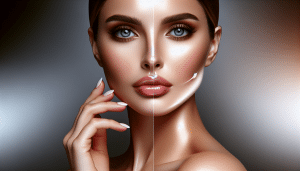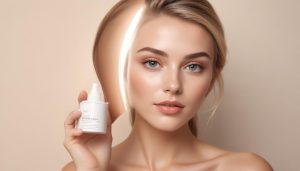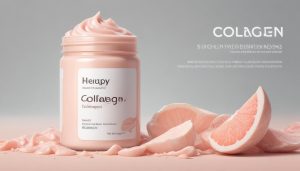Unpacking Collagen: What It Means for You
Ella Knight August 24, 2025
Curious about collagen’s buzz in beauty and wellness? This comprehensive guide explores its real benefits, common myths, and where science meets self-care for healthier skin, hair, and beyond. Learn how collagen works, what affects your body’s levels, and how lifestyle and nutrition play their part in visible results.
Understanding Collagen’s Role in Skin Health
Collagen is the structural protein the body relies on for skin elasticity and firmness. It’s what gives younger skin that smooth, plump appearance, and its steady decline with age often triggers the earliest visible signs of aging, like fine lines and sagging. Many people wonder if supplements, creams, or dietary tweaks can actually help boost collagen levels. While much is claimed, understanding how collagen works is the true foundation for any wellness or beauty regimen (Source: https://www.nih.gov/news-events/nih-research-matters/understanding-collagen).
Collagen naturally forms a mesh-like structure underneath the surface of the skin, acting as support scaffolding. Scientific studies suggest factors such as UV exposure, smoking, and pollution accelerate the breakdown of this protein. Beyond topical skincare, internal health and lifestyle choices contribute substantially to how collagen functions within skin tissue, influencing everything from hydration levels to recovery after sun exposure (Source: https://www.ncbi.nlm.nih.gov/pmc/articles/PMC3583886/).
Some skincare products advertise collagen content or benefits, but topical collagen molecules are generally too large to directly enter through the skin. Instead, ingredients that protect existing collagen—like antioxidants and sunscreen—are shown to be more effective for skin integrity. For those seeking improvement, a holistic approach balancing sun protection, healthy eating, and supported hydration is widely recognized as beneficial.
Collagen and Diet: What Foods Support Natural Levels?
Diet plays a big role in collagen formation, and plenty of everyday foods offer ingredients your body needs for its production. Eating foods with vitamin C like citrus, berries, and peppers can help promote collagen synthesis, according to nutrition experts. Certain proteins, such as fish, chicken, and bone broth, also supply amino acids that give your body the raw material needed for collagen creation (Source: https://www.hsph.harvard.edu/nutritionsource/collagen/).
Other nutrients assist in maintaining collagen’s structure. Copper, zinc, and sulfur—found in nuts, seeds, shellfish, and eggs—are involved in collagen cross-linking, strengthening the overall protein shape. A varied menu of colorful fruits, vegetables, and lean proteins isn’t just wellness advice, but a key pillar in skin-supportive nutrition. The Mediterranean diet, for instance, is linked to better skin outcomes, partly thanks to its focus on whole foods and healthy fats.
While supplements with collagen peptides are widely marketed, not all are equally effective for everyone. Research remains mixed about whether orally consumed collagen offers notable visible results—or if your body simply uses the constituent amino acids as needed, rather than targeting skin or hair specifically (Source: https://www.ncbi.nlm.nih.gov/pmc/articles/PMC6835901/). A balanced diet remains a foundational step for most people hoping to maintain a youthful, healthy appearance naturally.
Lifestyle Factors That Affect Collagen Production
Collagen levels don’t just depend on age, but lifestyle choices have a notable impact too. Sun exposure is widely recognized as a leading contributor to collagen degradation. Protective habits, like regular sunscreen use and seeking shade during peak hours, are advised by dermatologists to help slow down the deterioration process and preserve firmness in skin (Source: https://www.aad.org/public/everyday-care/sun-protection/sunscreen/how-sun-causes-skin-aging).
Other factors—such as stress levels, sleep patterns, and tobacco use—play consequential roles. Chronic stress can result in hormonal shifts impacting collagen breakdown and repair cycles. Likewise, restful sleep supports the body’s natural regenerative processes, while regular smoking has been shown to dramatically accelerate skin aging and reduce collagen density. Wellness practices like mindfulness, regular exercise, and mindful sleep routines benefit both body and skin.
On top of external factors, pollution is also emerging as a threat to collagen integrity. Microparticles in the air can induce oxidative stress, which damages skin structure over time. Regular gentle cleansing and the use of antioxidant-rich serums can form a barrier, reducing harm and supporting natural collagen repair. Understanding which factors accelerate aging allows anyone to make more informed choices for lasting skin and hair wellness.
Common Myths About Collagen in Beauty
One of the most persistent beliefs is that applying collagen creams to the skin instantly firms and plumps. In reality, the molecular size of collagen molecules prevents deep absorption, and any effects are primarily on the surface. Instead, topical application supports the skin’s hydration barrier rather than directly rebuilding deeper structures. Recognizing the distinction between hydration enhancement and structural repair helps set realistic beauty goals.
Another myth is that anyone can dramatically change their natural collagen levels overnight. The truth is more nuanced. While products and supplements can assist in optimizing the body’s natural production, long-term results require consistent habits and patience. Marketing language sometimes obscures this, but scientific communities reiterate the importance of preventative care, sun protection, and nutrition over quick fixes (Source: https://www.ncbi.nlm.nih.gov/pmc/articles/PMC6110059/).
Lastly, many believe oral collagen is universally suitable, but outcomes vary significantly across individuals depending on both age and genetic factors. Personalized routines, tailored to lifestyle and skin type, tend to yield the best results. Staying informed on evidence-based strategies and approaching new products with healthy skepticism ensures that wellness routines are both safe and effective.
Emerging Research and Future Directions for Collagen
Science continues to explore the relationship between collagen, wellness, and beauty results. Recent clinical trials focus on marine-sourced collagen peptides, plant-based alternatives, and the interaction between collagen and other skincare actives. Early findings indicate promising potential for improving skin elasticity and hydration, though experts advise cautious optimism until larger, long-term studies confirm initial benefits (Source: https://www.ncbi.nlm.nih.gov/pmc/articles/PMC7238026/).
The future of collagen in wellness likely includes not just supplements and skincare, but breakthroughs in biotechnology. Researchers are investigating new ways to activate the body’s own collagen factories, using targeted peptides, plant extracts, and micro-needling procedures designed to coax regeneration. These innovative approaches promise to expand the toolbox for maintaining youthful skin—while also making results more accessible and customizable.
Another promising development is the focus on holistic skin health, where collagen is maintained alongside a diverse range of supportive nutrients and habits. As consumers and practitioners alike embrace this integrative philosophy, expectations are shifting away from miracle products toward more robust, sustainable, and science-backed routines. Staying updated on new findings ensures routines evolve in step with best practice outcomes in beauty and wellness.
Everyday Tips to Maximize Collagen’s Benefits
Building a collagen-friendly lifestyle is within everyone’s reach. Start by focusing on well-rounded nutrition, including plenty of colorful fruits, lean proteins, and foods rich in vitamin C and zinc. These building blocks work quietly but powerfully over time, supporting natural collagen renewal from within.
Minding everyday sun protection and hydration pays off visibly. Use broad-spectrum sunscreen throughout the year, even on overcast days, and seek the shade when the sun is strongest. Paired with regular exercise, these facts don’t just improve skin health but overall well-being, creating a virtuous cycle that radiates from the inside out (Source: https://www.cdc.gov/aging/publications/features/healthy-skin-older-adults/index.html).
Lastly, don’t overlook healthy sleep and stress management. Consistent rest and routine downtime are essential for the body’s repair mechanisms, directly influencing how collagen operates. Rather than searching for shortcuts, cultivating these simple but powerful habits will consistently support long-term beauty and wellness goals.
References
1. National Institutes of Health. (2020). Understanding collagen in skin. Retrieved from https://www.nih.gov/news-events/nih-research-matters/understanding-collagen
2. Varani, J., Dame, M. K., Rittie, L. et al. (2006). Decreased collagen production in chronologically aged skin. Retrieved from https://www.ncbi.nlm.nih.gov/pmc/articles/PMC3583886/
3. Harvard T.H. Chan School of Public Health. (2023). Collagen. Retrieved from https://www.hsph.harvard.edu/nutritionsource/collagen/
4. Bolke, L., Schlippe, G., Gerß, J., & Voss, W. (2019). Oral supplementation of specific collagen peptides has beneficial effects on human skin physiology: A double-blind, placebo-controlled study. Retrieved from https://www.ncbi.nlm.nih.gov/pmc/articles/PMC6835901/
5. American Academy of Dermatology Association. (2023). How the sun causes skin aging. Retrieved from https://www.aad.org/public/everyday-care/sun-protection/sunscreen/how-sun-causes-skin-aging
6. Centers for Disease Control and Prevention. (2022). Healthy skin in older adults. Retrieved from https://www.cdc.gov/aging/publications/features/healthy-skin-older-adults/index.html







